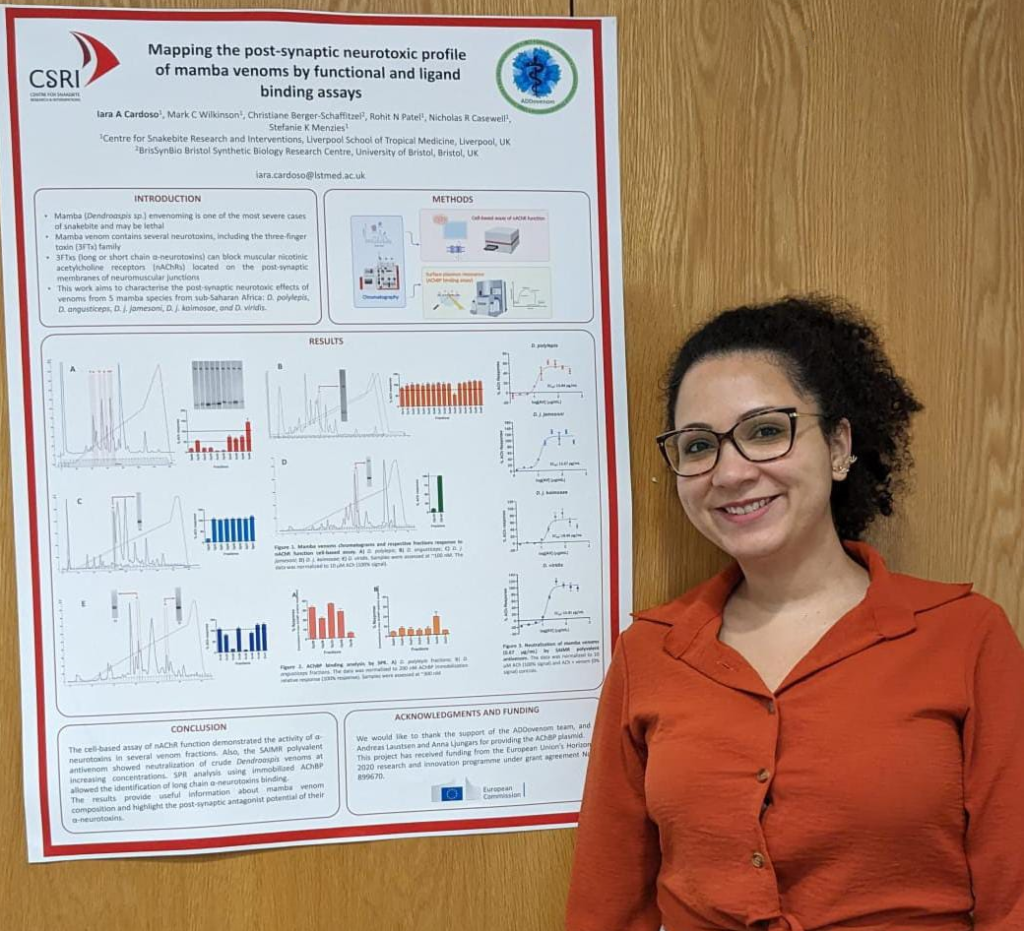Iara Aimê Cardoso, a Research Assistant at Liverpool School of Tropical Medicine, presented a poster at the 10th International Toxinology Meeting – Venoms & Toxins 2023 (Oxford, 22-24 August 2023) about some of the ADDovenom team’s research.
Iara’s poster, Mapping the post-synaptic neurotoxic profile of mamba venoms by functional and ligand binding assays, was based on research co-produced with Mark C. Wilkinson, Christiane Berger-Schaffitzel, Rohit N. Patel, Nicholas R. Casewell, Stefanie K. Menzies.
The research focused on snakes from the genus Dendroaspis (mambas), as mamba envenoming is “one of the most severe cases of snakebite, causing progressive descending paralysis and respiratory failure, which may become lethal. Their venom contains several neurotoxins, including toxins of the three-finger toxin (3FTx) family, which possess diverse biological functions, including the blockage of muscular nicotinic acetylcholine receptors (nAChRs) located on the post-synaptic membranes of neuromuscular junctions (these 3FTxs are known as long or short chain α-neurotoxins)”. The research “characterises the post-synaptic neurotoxic effects of venoms from five mamba species from sub-Saharan Africa”, and the “results will provide useful information about mamba venom composition and highlight the post-synaptic antagonist potential of their α-neurotoxins”.
Another LSTM Research Assistant who contributes to ADDovenom, Camille Abada, also displayed a poster at this conference: Monoclonal antibody discovery for snake venom toxins using yeast surface display.


